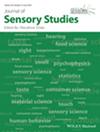Chinese red wine and cheese pairings: A preliminary study of consumer perception using check-all-that-apply and hedonic tests
Abstract
Food and wine pairing has been studied in marketing, sensory science, and hospitality fields to evaluate the gastronomic experience of consumers. In this study, three Chinese red wines (Cabernet Gernischt: CG, Marselan: MS, and Vitis amurensis Rupr: VR) were paired with two French cheeses (Brie and Camembert) and two Chinese cheeses [sweet cheese (SWC) and salty cheese (SAC)]. The physicochemical properties of wines and cheeses were determined. Also, sensory profiles of wine and cheese samples were collected using 100 participants by a check-all-that-apply (CATA) test, and the ideal pairing of wines and cheeses was evaluated using hedonic, flavor intensity, and body-to-body relationship tests. The results showed that VR wine presented a sweet flavor and full body. MS and CG wines have a strong, bitter taste and a hot and rough mouthfeel than VR wine. The flavors of Camembert and Brie cheeses were richer and more complex than those of SWC and SAC. The textures of Camembert and Brie were elastic, smooth, creamy, fatty, and soft. VR wine enhanced consumer preference for all four types of cheeses (each combination liking score is more than six). Wine characteristics were suppressed and not enhanced by pairing with cheese. The ideal pair evaluation in terms of flavor intensity and body-to-body relationship confirmed that wines dominated these two aspects for cheese-wine pairs.
Practical Applications
CATA questions conducted with consumers are popular to profile and characterize food and beverage products. This investigation helps validate CATA method applications in food and wine pairing areas. In addition, the hedonic, flavor intensity, and body-to-body tests of Chinese wine and Chinese cheese pairing are helpful in promoting the development of the Chinese wine and cheese industry. The findings provide future research directions in pairing principles of food and beverages.

 求助内容:
求助内容: 应助结果提醒方式:
应助结果提醒方式:


